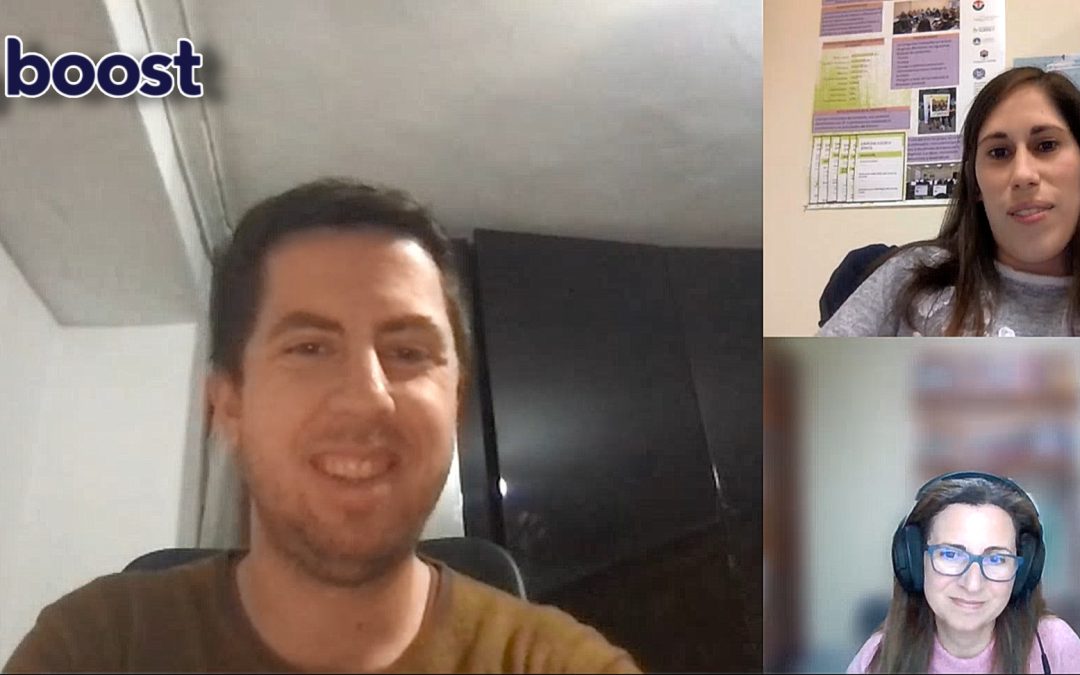Following the developments of the BOOST project, a series of interviews was launched to photograph the situation in early 2022. The second appointment saw as interviewees Prof. Eva Romera, Dr. Antonio Camacho, and Prof. Rocío Luque González from the University of Cordoba, which implements the BOOST project in schools in Spain. The exchange was an opportunity to deep dive into the current state of implementation of the BOOST project, stressing the difficulties posed by COVID-19 and the major achievements from the adoption of SEL programmes in the school ecosystem, with an eye at the next steps and hopes for the upcoming months.
The team gave a clear and complete overview of the current state of the BOOST project. Dr. Camacho explained that in February they finished the training and the follow-ups for the implementation of the BOOST approach in the schools in Cordoba. In his opinion, all the schools are very responsible, and they are autonomously developing their proposals according to their own needs.
Because of the pandemic, one of the main challenges they encountered with the schools was the need to adapt to new types of social relationships. As Prof. Luque-González explained, before COVID-19, they could physically go to the schools and collaborate with teachers to explain how to implement and adapt to the BOOST project in all different contexts. Unfortunately, when the pandemic broke out, they lost this precious possibility of social interaction. Despite schools’ re-openings in Autumn 2020, people still needed to respect all health-related security measures, and it was exceedingly difficult to promote social and emotional development in that context. In Prof. Romera’s own words, since children had to maintain social distancing, cooperativeness was more challenging to put into practice; if you cannot touch, you cannot be near, and you must keep a mask with children, you lose most of the ability to interact with them.
Nevertheless, despite all challenges, they continued giving guidance in an online form, and the responses received from the schools were particularly good. According to Prof. Romera, the overall situation turned out to be an opportunity to rethink the meaning of the BOOST approach since the hurdles they faced made the BOOST team aware that children needed to work with the BOOST approach, proving that the promotion of children’s well-being, as much as their resilience, mental health and social and emotional competencies are not only fundamental processes, but they are necessary now more than ever to cope with the new challenges posed by COVID-19.
But what’s new about the adoption of SEL programmes in schools? The interviewees agree that one of the most noteworthy achievements is the excellent response in terms of motivation from schools regarding SEL programmes in this unexpected scenario. Dr. Camacho explained that, at the beginning of the project, schools were already working on the same issues that the BOOST approach tries to tackle; however, they were doing so individually and without specific planning. The project has been an added value as working with this new approach improved the coordination among teachers and the whole school system in incorporating SEL competencies. In Dr. Camacho’s words, thanks to the educational projects, better identification of needs and wiser planning, teachers developed many new social and emotional competencies, which profoundly improved the schools’ climate. Thanks to the systematic and holistic social and emotional work within schools, the students gradually became used to this innovative approach.
The main lesson learnt from the BOOST project is that the promotion of mental health and social and emotional well-being are all real conditions not only for academic learning, but the whole society, especially in these challenging times. In Prof. Romera’s own words, today’s social context makes us reflect on the big challenges and achievements of BOOST: this situation imposes us the need to grow up and to respect human rights in the local, regional, national, and international situation.
In the closing remarks, Prof. Romera explained that the next steps and hopes are about expanding the BOOST project outside of the experimental schools and continuing to promote SEL activities in schools in the years to come. To this aim, they are working on establishing BOOST trainers to promote the dissemination of the BOOST approach to help other schools put it into practice. To expand the project’s reach, they are also working on the involvement of stakeholders and politicians since they must know what the BOOST approach means and its vast potential.

